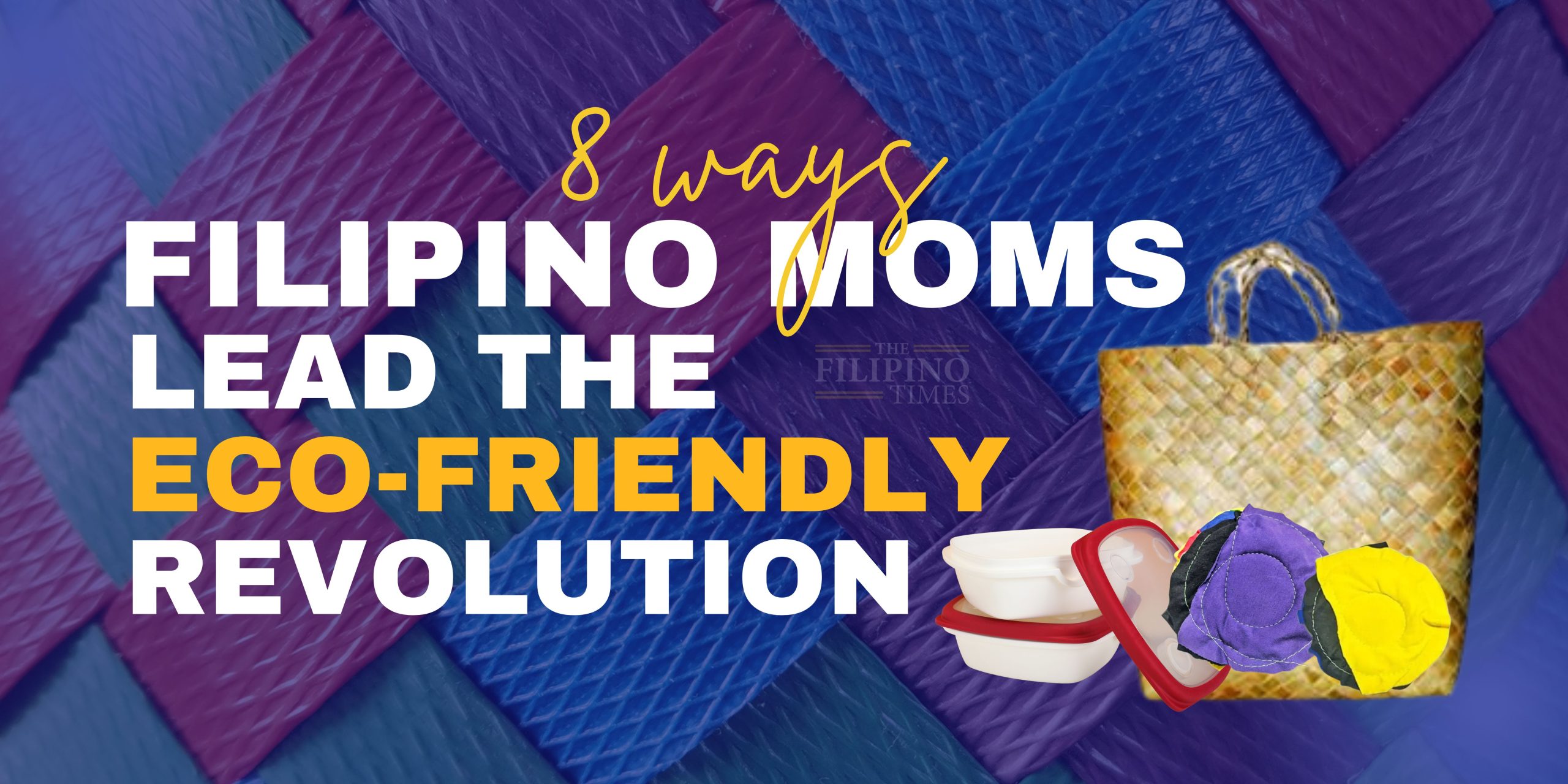Have you ever excitedly opened the fridge expecting to indulge in some ice cream, only to find it filled with frozen fish instead? Or perhaps you grew up knowing that the cookie tin wasn’t for treats, but rather for storing sewing materials? If so, congratulations! You’ve been raised by a Filipina mom who has been a staunch advocate of eco-friendly practices since day one.
While some may jest or shy away from these customs, it’s time to reconsider their significance. These seemingly unconventional habits are, in fact, valuable steps toward environmental conservation that we can all adopt to make a positive impact on the world around us.
As sustainability becomes a global trend and nations strive to meet ambitious environmental targets by 2050, the world can take a page from the playbook of Filipino households, where eco-conscious living is not just a choice but a way of life.
Let The Filipino Times guide you through their practices for inspiration:
- Reusing containers. Filipino moms exhibit unparalleled resourcefulness, finding creative ways to reduce waste and maximize utility. They repurpose containers, transforming ice cream tubs into storage solutions and peanut butter jars into makeshift piggy banks.
- Repurposing old clothes. Rather than discarding worn-out clothes, growing up with a Filipina mom may have taught you to repurpose them as cleaning rags or wipes.
- Reinventing food. To help reduce food waste, leftover food can be repurposed into a new dish, such as transforming leftover rice, known as “kaning lamig,” into a comforting bowl of champorado or a breakfast favorite, sinangag. Additionally, instead of throwing away food scraps and yard trimmings, consider composting them to create nutrient-rich soil for gardening. Filipino households often have compost pits or bins in their backyard for this purpose.
- Conserving energy. “Turn off the lights.” Filipino children are taught to save energy by switching off lights when not in use and unplugging appliances after. Moms of the 80s and some 90s kids often taught manual clothes washing and sun drying instead of using machines, saving both energy and money on electricity bills.
- Conserving water. Filipino moms also train children to turn off the faucet while brushing their teeth and use a glass of water. Filipino households commonly use “timba” and “tabo” to store water. Used water from washing clothes or dishes can be reused for cleaning or watering plants.
- Choosing all-natural ingredients. Filipino moms were adept at shopping wisely and supporting local businesses. By choosing locally sourced and sustainably produced goods, you could reduce your carbon footprint and support the local economy. Many Filipino mothers also cultivated small gardens or utilized vertical gardening techniques to grow herbs and vegetables, promoting self-sufficiency and reducing reliance on store-bought produce.
- Reducing plastic waste. A common depiction of a grandma or a Filipina mom is shopping in the market with a ‘bayong’ or straw bag so they don’t need to purchase plastic whenever they go shopping or visit the wet market. Some Filipino moms also prefer buying in bulk to avoid using products in plastic packaging. Some Filipino mom hacks to reduce plastic waste also include using reusable bags, water bottles, and containers, and avoiding single-use plastics such as straws and utensils.
- Educating others. Finally, educating others is another strength of Filipina moms. They excel at imparting knowledge, especially to their children, about eco-friendly practices and the importance of sustainability. You may not have realized it, but these practices passed down by your mom are invaluable habits that can help cultivate a culture of environmental responsibility and inspire others to adopt more sustainable lifestyles.
As the world progresses towards a more sustainable future, we can take inspiration from our Filipino moms and aunties. Their eco-friendly practices, deeply rooted in tradition and driven by resourcefulness, offer invaluable lessons for individuals and communities worldwide. By embracing the wisdom of Filipino households, we can all take significant steps towards preserving the planet for future generations. And as Overseas Filipino Workers (OFWs), we can carry the ethos of sustainability with us, showcasing that regardless of our location, environmental stewardship is a collaborative effort.




